houseofrepresentatives
Latest

House Democrats mobilize for next phase of net neutrality fight
Earlier this week, Senate Democrats, with the help of three Republicans, managed to pass a resolution to save net neutrality before its upcoming repeal in June. Now their counterparts in the House are trying to rally enough signatures to force a similar vote in that chamber. They have 90 Democrats but need over 20 Republican representatives to break ranks and sign on. The road to saving net neutrality is still very uphill.

Net neutrality still faces an uphill battle in Congress
The Senate voted today on whether to reject the FCC decision to remove net neutrality protections -- and though it was unclear for some time whether the Democrats would gain enough Republican support to pass the measure, they did. Along with the 49 Senate Democrats, three Republican Senators -- Susan Collins (ME), John Kennedy (LA) and Lisa Murkowski (AK) -- voted to repeal the changes put into place by the FCC in December, resulting in a 52-47 tally. The new regulations are currently scheduled to go into effect June 11th. However, while this battle may have been won by those in support of net neutrality, there's still a long, hard road ahead, and the Senate measure isn't likely to survive.

Bipartisan bill aims to prevent the government from forcing backdoors
A number of US Representatives introduced the Secure Data Act today, bipartisan legislation aimed at preventing the government from forcing backdoors into encrypted products and services. The act was introduced by Representatives Zoe Lofgren (D-CA) and Thomas Massie (R-KY) and was cosponsored by Jerrold Nadler (D-NY), Ted Poe (R-TX) and Matt Gaetz (R-FL). "Encryption backdoors put the privacy and security of everyone using these compromised products at risk," Lofgren said in a statement. "It is troubling that law enforcement agencies appear to be more interested in compelling US companies to weaken their product security than using already available technological solutions to gain access to encrypted devices and services."

House Democrats want to step up the fight against robocalls
Some in Congress don't think the FCC's latest anti-robocall measures go far enough. Democrats in the House Committee on Energy and Commerce have put forward one bill and two drafts that would give further grief to spam callers. The fully formed bill, the HANGUP Act, would force federal debt collectors to get your permission before robocalling you. This had actually been part of the 1991 Telephone Consumer Protection Act, bill sponsor Rep. Anna Eshoo said, but the 2015 Budget Act rolled it back. She characterized these automated calls as harassment, whether it came from a government contractor or anyone else.
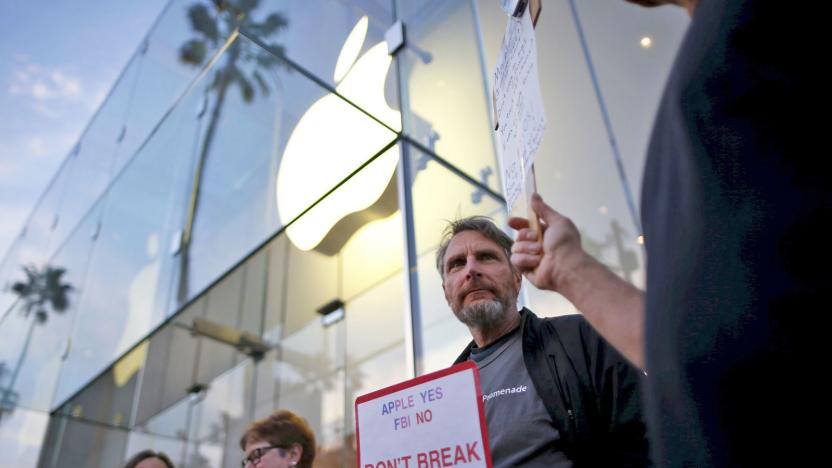
US lawmakers question FBI's decision to sue Apple in 2016
After the 2015 San Bernardino shooting, the FBI sued Apple to forcibly unlock the suspect's iPhone, asserting that the agency had exhausted all options before taking legal action. In the event, the bureau ended up reportedly paying an external vendor to break into the device. But last month, the Department of Justice poked holes in that justification with a report stating the FBI didn't do everything it could before bringing Apple to court. Today a bipartisan group of lawmakers sent a fact-finding letter to the agency's director Christopher Wray questioning whether the FBI could indeed have taken other action before the lawsuit.

The Zuckerberg hearings were a wasted opportunity
Over the past two days, members of Congress have peppered Facebook CEO Mark Zuckerberg with questions about how the platform manages users' privacy, what went wrong with Cambridge Analytica and what it's doing to strengthen protections going forward. These two hearings lasted more than 10 hours combined, and dozens of senators and representatives had a chance to ask questions in five- and four-minute allotments, respectively. Until this week, Congress had tried for years to get Zuckerberg to personally appear on Capitol Hill, instead of, say, dispatching another company executive. It's a shame, then, that the lawmakers ultimately squandered the time they had with him this week.

Facebook CEO: Europe's GDPR standards to be implemented worldwide
Mark Zuckerberg's Congressional testimony continues today as he speaks to the House Energy & Commerce Committee. During questioning, Congressman Gene Green asked the Facebook CEO about Europe's new General Data Protection Regulation (GDPR) and inquired as to whether the requirements set by that set of regulations will be applied outside of Europe. Previously, Zuckerberg has said that the company wouldn't necessarily be extending those user protections in full elsewhere in the world, telling Reuters earlier this month that he agreed with GDPR "in spirit" but not going so far as to say that it would be adopted as a worldwide standard. "We're still nailing down details on this, but it should directionally be, in spirit, the whole thing," he said at the time. Today, however, Zuckerberg changed his tune a little saying GDPR would be the standard going forward.

Congress wants Zuckerberg to testify about Cambridge Analytica
Thus far, two states, the FTC, UK Parliament and US Congress all want answers from Facebook regarding how political firm Cambridge Analytica ended up with data on 50 million users. Representatives from the company even met with staffers from House and Senate committees a couple days ago. But now the powerful House Energy and Commerce Committee wants to hear from Facebook CEO Mark Zuckerberg himself, and have officially requested he testify at an upcoming hearing.
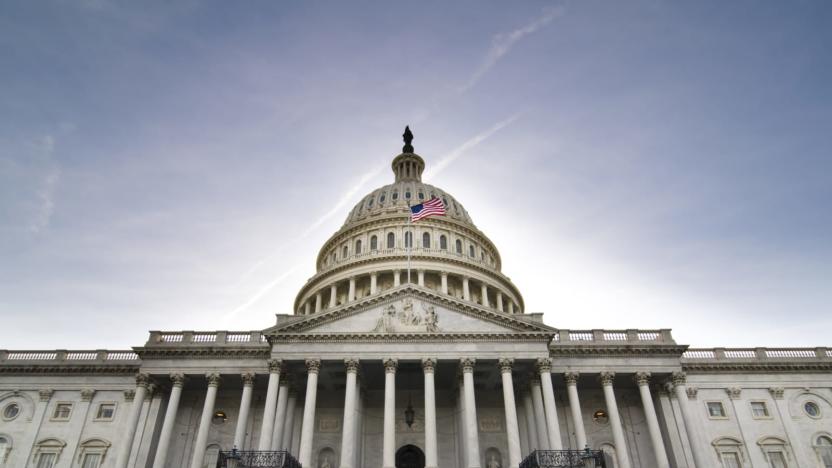
Facebook plans to brief Congress on the Cambridge Analytica scandal
Facebook is obviously in some very hot water in regards to Cambridge Analytica's use of its users' data. US Congress, the UK Parliament and even the FTC are looking for answers and Facebook is now agreeing to answer them. A company spokesperson has told us that Facebook representatives will be in Washington DC today and tomorrow meeting with staffers for the House and Senate Intel Committees, the House Energy and Commerce Committee, the Senate Commerce Committee and the House and Senate Judiciary Committees. Bloomberg reports that details on committee briefings are being worked out.
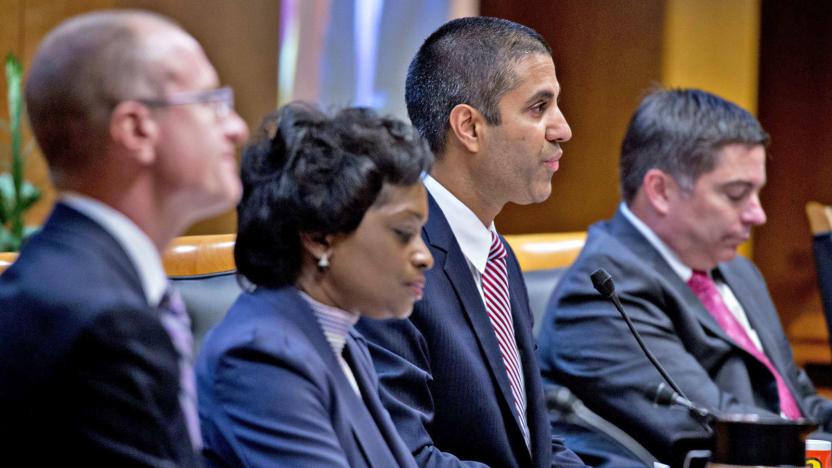
US government will investigate fake net neutrality comments
In December, a number of US Representatives sent a letter to the Government Accountability Office (GAO) asking it to investigate fraudulent comments submitted to the FCC's proposal to repeal net neutrality. Multiple groups found evidence that millions of the comments submitted during the FCC's public comment period were linked to fake email addresses, were fraudulently posted under others' names and addresses and were even attributed to people known to be dead. Congressional leaders, attorneys general and even FCC commissioners called for the FCC to delay its vote on the proposal while the extent of the fake comments could be properly investigated, though as we well know, the FCC went ahead with the vote anyway. Now, Ars Technica reports, the GAO has agreed to investigate the issue.
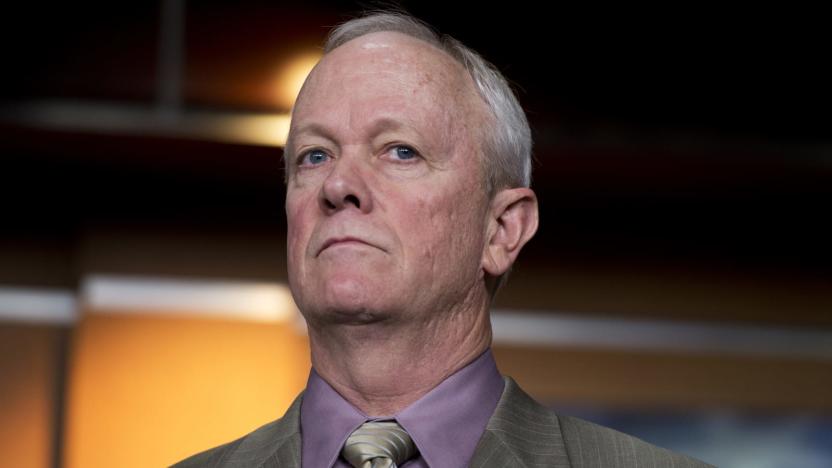
Congressman requests Meltdown and Spectre briefing from chip makers
US Representative Jerry McNerney sent a letter to Intel, AMD and ARM today requesting a briefing on the Meltdown and Spectre vulnerabilities and the companies' handling of them. McNerney, a California representative and member of the House Energy and Commerce Committee, said, "I am looking to better understand the nature of these critical vulnerabilities, the danger they pose to consumers and what steps your companies plan to take to protect consumers."

New bill seeks to ban Huawei from any US government contracts
Mere days since Huawei lost a deal with AT&T to sell its flagship phones in the US due to security concerns, the Chinese tech company faces a new challenge to its US expansion plans. Congress has just proposed a bill that prohibits any government agency from working with Huawei (and another Chinese tech firm, ZTE). The bill, titled H. R. 4747: "Defending U.S. Government Communications Act," cites several intelligence reports that these telecommunications companies are "subject to state influence."
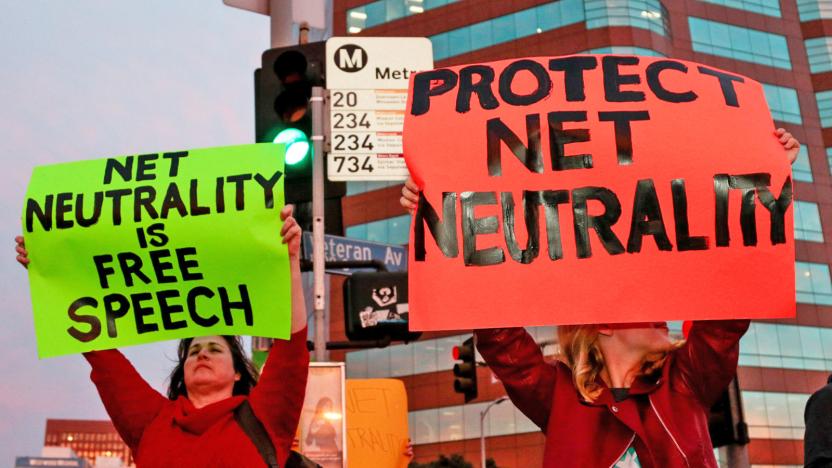
Representatives ask GAO to investigate FCC net neutrality comments
It's not just senators calling for a review of the FCC's millions of fake anti-net neutrality comments. Representatives Elijah Cummings, Greg Meeks and Frank Pallone have sent a letter to the Government Accountability Office asking it to investigate the comments. They want to know the extent of the fakery, which would violate laws barring fraudulent representation in any subject under the executive branch's oversight. And crucially, they also want a look at the FCC's response -- they're "concerned" that it stonewalled New York's investigation by withholding information (at least, until very recently).

NSA surveillance expansion bill moves to House for a vote
Intelligence officials might not get the permanent surveillance powers they're looking for, but they could get some key concessions all the same. The House Intelligence Committee has passed the FISA Amendments Reauthorization Act of 2017 in a partisan 12-8 vote, clearing it for an eventual vote in the House of Representatives. The bill is ostensibly about renewing the FISA Amendments Act's Section 702 for 4 years, but it also expands the list of eligible spying targets.

EFF tool tells your members of Congress to fight for net neutrality
The FCC may be bent on killing net neutrality, but that doesn't mean you have to stay silent or offer mostly symbolic protests. The Electronic Frontier Foundation has created a web tool that makes it easy to ask your members of Congress to fight for an open internet. All you have to do us plug in your address, personalize your message (if you like) and hit "submit" -- your representatives and senators will receive your concerns and hopefully do something about it.
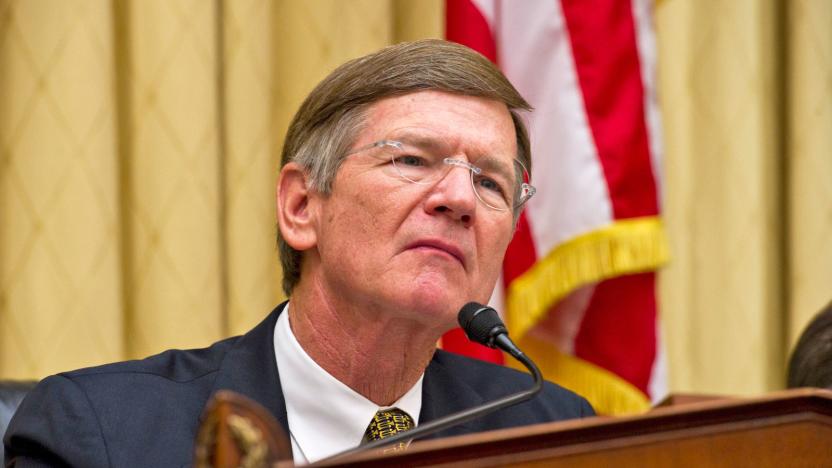
Climate change-denying House science chairman is retiring
Lamar Smith, the chairman of the US House of Representatives' Committee on Science, Space and Technology, has announced that he'll retire when his term ends next year. The Texas representative, an avid climate change denier, has been a controversial and, to many, an unwelcome head of the committee. During his tenure, he has published multiple opinion pieces on climate change, including some that claim it isn't a reality and others that state it's real but beneficial.

Kaspersky says it briefly possessed classified NSA files
Earlier this month, reports surfaced that classified NSA documents detailing how US agencies defend their cyber networks and how they breach foreign ones were stolen by Russian hackers in 2015. Those reports noted that the files were spotted through Kaspersky security software used by an NSA contractor who had saved the classified documents on a home computer. Well, Kaspersky has now provided some more information about the incident and it has acknowledged that it did in fact have classified NSA materials in its possession, the Associated Press reports.

Senators propose reforms to wide-reaching surveillance law
Eleven senators -- both Republican and Democrat -- introduced new legislation today that calls for substantial reforms to Section 702 of the Foreign Intelligence Surveillance Act, Reuters reports. Section 702 allows intelligence agencies to monitor the communications of foreign targets living outside of the US, but it also enables those agencies to collect information on US citizens if they happen to be in communication with the non citizens being monitored.
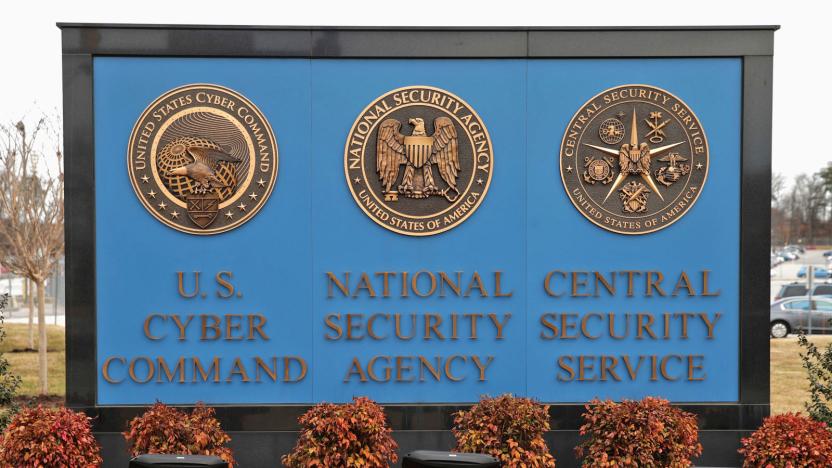
Russian hackers reportedly stole NSA cyber defense material
The Wall Street Journal reports today that Russian hackers stole documents detailing how US agencies defend their networks against cyberattacks, how they breach foreign networks and the computer code they use to do so. Sources told the publication that the stolen files were identified through Kaspersky security software used by an NSA contractor that had taken classified material from the NSA and saved it on his come computer.

Former Equifax CEO blames breach on one IT employee
The Equifax data breach that leaked information on the now-145 million people was caused by a vulnerability in Apache's Struts system. Trouble is, the software provider supplied a patch back in March that should have eliminated that vulnerability. But Equifax's former CEO (who suddenly retired last week) told the House Energy and Commerce Committee that a single IT technician was at fault for the whole thing after they failed to install the patch.



